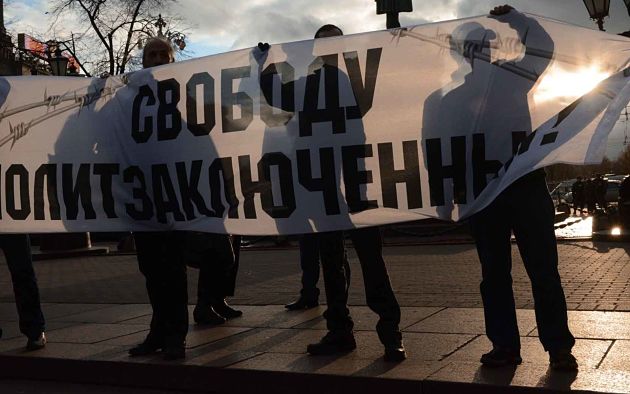In the past week, two significant events have occurred that offer hope that political and religious persecution in Russia will become unsafe for those who perpetrate it, and that there may be prospects for the early release or at least alleviation of the plight of prisoners of conscience.
The United States House of Representatives has passed a resolution directing the U.S. government to seek the release of political prisoners in Russia and to impose personal sanctions on Russian officials responsible for their release (https://www.congress.gov/bill/116th-congress/house-resolution/958). It is worth noting that while the current president, Donald Trump, was reluctant to impose such sanctions on anyone, believing that America should minimize interference in the internal affairs of others, the new president, Joe Biden, who was elected on the slogan of restoring the «moral leadership of the United States» in the world, is likely to change this policy and include the sanctions mechanism.
Almost simultaneously, on December 7, EU foreign ministers approved a new EU Action Plan on Human Rights and Democracy, which allows for personal sanctions against officials of any country guilty of serious human rights violations. These sanctions include, in particular, banning them from entering the EU, opening bank accounts in their countries, owning assets, etc.
All this is happening after the scandal of Alexei Navalny’s poisoning, for which the German authorities essentially blamed the Kremlin. And all this is happening on the eve of the supposed new rapprochement between the US and the EU after four years of radical cooling of relations due to the isolationist course of the White House.
In this context, we as Muslims can see two components in what is happening. On the one hand, as we have written before, the coming to power of Joe Biden may entail serious risks for the centers of power in the Muslim world, which the West will pressure, including using the card of human rights protection. On the other hand, as we have written more than once, we are living in an era when Muslims worldwide do not have a unified force to defend their interests equally and simultaneously. Whether we like it or not, we live in the reality of separate, or as they are commonly called, nation-states, where each must rely on its own strength and its situational allies.
While some Muslims who have such states can count on them and their allies, those who live in foreign or oppressive states place their hope in external forces that can exert pressure on them, as is the case with Muslims in China or Myanmar. Unfortunately, the issue of their persecution is not raised by Muslim countries, as it should be, but by the West. Therefore, if Muslim countries ignore the persecution of co-religionists in Putin’s Russia, and the West puts this issue in the framework of a broader issue of persecution of all political prisoners and religious minorities in particular, we can only welcome it and must use it, because we currently have no other allies on this issue.
As for the practical part — who and how to ask, the human rights center «Memorial» manages a list of political prisoners, and for several years the majority of Muslims have been on this list. In 2017, our team compiled the «Silantyev List» (https://golosislama.com/news.php?id=31080), which included a significant number of Muslims who are currently victims of the state policy of Islamophobia. Today, the Free Russia Forum maintains the «Putin’s List», which includes not the victims of the regime, but the representatives responsible for its crimes, including those of a repressive nature.
In this regard, we call upon all Muslims to collect, exchange, and publicize data on individuals responsible for the repression of Muslims in Russia. If Allah wills, they may be needed in the near future.

